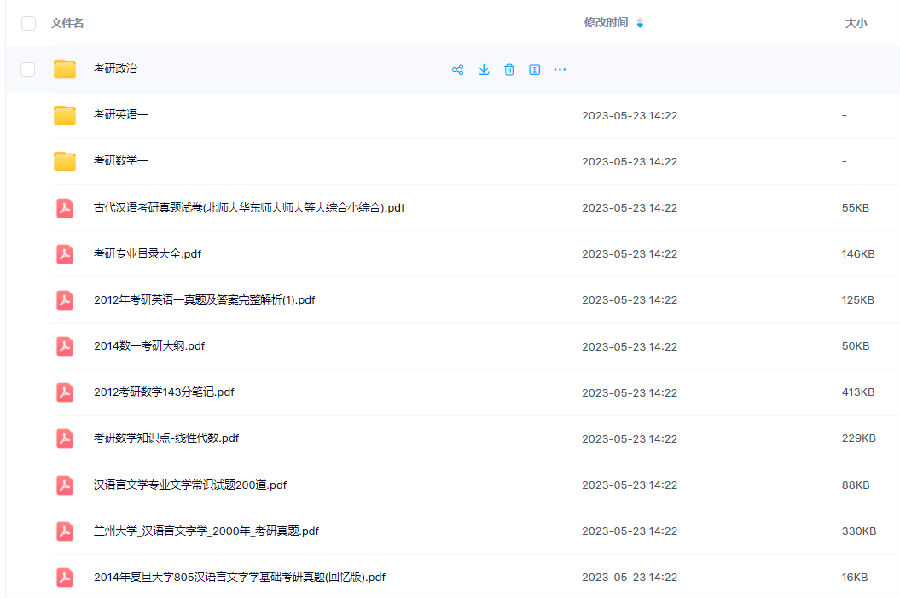【钜惠】25考研
红包
【专业课】热门类HOT
25考研
【MBA】在职考研
【择校】择专业
计划
【大纲】电子资料
计划
【25考研】全科学
预备
【在职】择校分析
25考研
【测评】英语|政治
免费
【报录比】查询
免费学
【备考】研友群
精

扫码加入训练营
牢记核心词
学习得礼盒
Traditionally, the study of history has had fixed boundaries and focal points — periods, countries, dramatic events, and great leaders. It also has had clear and firm notions of scholarly procedure: how one inquires into a historical problem, how one presents and documents one’s findings, what constitutes admissible and adequate proof.
Anyone who has followed recent historical literature can testify to the revolution that is taking place in historical studies. The currently fashionable subjects come directly from the sociology catalog: childhood, work, leisure. The new subjects are accompanied by new methods. Where history once was primarily narrative, it is now entirely analytic. The old questions “What happened?” and “How did it happen?” have given way to the question “Why did it happen?” Prominent among the methods used to answer the question “Why” is psychoanalysis, and its use has given rise to psychohistory.
Psychohistory does not merely use psychological explanations in historical contexts. Historians have always used such explanations when they were appropriate and when there was sufficient evidence for them. But this pragmatic use of psychology is not what psychohistorians intend. They are committed, not just to psychology in general, but to Freudian psychoanalysis. This commitment precludes a commitment to history as historians have always understood it. Psychohistory derives its “facts” not from history, the detailed records of events and their consequences, but from psychoanalysis of the individuals who made history, and deduces its theories not from this or that instance in their lives, but from a view of human nature that transcends history. It denies the basic criterion of historical evidence: that evidence be publicly accessible to, and therefore assessable by, all historians. And it violates the basic tenet of historical method: that historians be alert to the negative instances that would refute their theses. Psychohistorians, convinced of the absolute rightness of their own theories, are also convinced that theirs is the “deepest” explanation of any event, that other explanations fall short of the truth.
Psychohistory is not content to violate the discipline of history (in the sense of the proper mode of studying and writing about the past); it also violates the past itself. It denies to the past an integrity and will of its own, in which people acted out of a variety of motives and in which events had a multiplicity of causes and effects. It imposes upon the past the same determinism that it imposes upon the present, thus robbing people and events of their individuality and of their complexity. Instead of respecting the particularity of the past, it assimilates all events, past and present, into a single deterministic schema that is presumed to be true at all times and in all circumstances.
1. Which of the following best states the main point of the text?
[A] The approach of psychohistorians to historical study is currently in vogue even though it lacks the rigor and verifiability of traditional historical method.
[B] Traditional historians can benefit from studying the techniques and findings of psychohistorians.
[C] Areas of sociological study such as childhood and work are of little interest to traditional historians.
[D] The psychological assessment of an individual’s behavior and attitudes is more informative than the details of his or her daily life.
2. The author mentions which of the following as a characteristic of the practice of psychohistorians?
[A] The lives of historical figures are presented in episodic rather than narrative form.
[B] Archives used by psychohistorians to gather material are not accessible to other scholars.
[C] Past and current events are all placed within the same deterministic diagram.
[D] Events in the adult life of a historical figure are seen to be more consequential than are those in the childhood of the figure.
3. The author of the text suggests that psychohistorians view history primarily as
[A] a report of events, causes, and effects that is generally accepted by historians but which is, for the most part, unverifiable.
[B] an episodic account that lacks cohesion because records of the role of childhood, work, and leisure in the lives of historical figures are rare.
[C] an uncharted sea of seemingly unexplainable events that have meaning only when examined as discrete units.
[D] a record the way in which a closed set of immutable psychological laws seems to have shaped events.
4. The author of the text puts the word “deepest” (line 14, paragraph 3) in quotation marks most probably in order to
[A] signal her reservations about the accuracy of psychohistorians’ claims for their work.
[B] draw attention to a contradiction in the psychohistorians’ method.
[C] emphasize the major difference between the traditional historians’ method and that of psychohistorians.
[D] disassociate her opinion of the psychohistorians’ claims from her opinion of their method.
5. In presenting her analysis, the author does all of the following EXCEPT.
[A] Make general statements without reference to specific examples.
[B] Describe some of the criteria employed by traditional historians.
[C] Question the adequacy of the psychohistorians’ interpretation of events.
[D] Point out inconsistencies in the psychohistorians’ application of their methods.
本文关键字: 2015年管理类联考 2015考研

 资料下载
资料下载
2014年-2024年考研历年真题汇总
发布时间:2024-04-25扫码添加【考研班主任】
即可领取资料包
考研大纲PDF电子版下载-历年(附解析)
发布时间:2024-04-25扫码添加【考研班主任】
即可领取资料包
2025年考研政数英备考资料zip压缩包
发布时间:2024-04-25扫码添加【考研班主任】
即可领取资料包
考研英语大纲词汇5500打印版(基础必备)
发布时间:2024-04-25扫码添加【考研班主任】
即可领取资料包
新东方在线考试模拟题【12套】
发布时间:2024-04-25扫码添加【考研班主任】
即可领取资料包
2025年考研专业课知识点总结
发布时间:2024-04-25扫码添加【考研班主任】
即可领取资料包
新东方考研资料下载地址
发布时间:2023-05-17新东方在线考研资料合集
下载方式:微信扫码,获取网盘链接

目录:
1.2013-2023年近10年政数英真题及解析PDF版(新东方)
2.2013-2023年专业课考试历年真题及解析PDF版
3.24考研复习备考资料大合集:大纲+备考资料+词汇书+考前押题+自命题
资料介绍:
1.2013-2023年近10年政数英真题及解析PDF版(新东方)
 、
、
2.2013-2023年专业课考试历年真题及解析PDF版


3.24考研复习备考资料大合集

3.24考研复习备考资料:考研大纲

3.24考研复习备考资料:政数英备考资料+自命题真题

------------------
考研备考过程中,尤其是专业课部分,参考往年的考试真题,对于我们的复习有更好的帮助。北京大学考研真题资料都有哪些?小编为大家进行了汇总。
北京大学考研真题资料-公共课

北京大学考研真题资料-专业课


以上就是关于“北京大学考研真题资料下载(历年汇总)”的整理,更多考研资料下载,请关注微信获取下载地址。
2024考研公共课必背知识点汇总
发布时间:2023-01-03扫码添加【考研班主任】
即可领取资料包
2013-2023考研历年真题汇总
发布时间:2023-01-03扫码添加【考研班主任】
即可领取资料包
考研英语大纲词汇(PDF可打印)
发布时间:2023-01-03扫码添加【考研班主任】
即可领取资料包
2024考研专业课知识点总结
发布时间:2023-01-03扫码添加【考研班主任】
即可领取资料包
2023考研政治 内部押题 PDF
发布时间:2022-11-16扫码添加【考研班主任】
即可领取资料包
徐涛:23考研预测六套卷
发布时间:2022-11-16扫码添加【考研班主任】
即可领取资料包
考研政数英冲刺资料最新整理
发布时间:2022-11-16扫码添加【考研班主任】
即可领取资料包
23考研答题卡模板打印版
发布时间:2022-11-16扫码添加【考研班主任】
即可领取资料包
2023考研大纲词汇5500PDF电子版
发布时间:2022-07-28扫码添加【考研班主任】
即可领取资料包
考研历年真题(公共课+专业课)
发布时间:2022-07-28扫码添加【考研班主任】
即可领取资料包
考研英语阅读100篇附解析及答案
发布时间:2022-01-07扫码添加【考研班主任】
即可领取资料包
新东方考研学霸笔记整理(打印版)
发布时间:2022-01-07扫码添加【考研班主任】
即可领取资料包
2001-2021年考研英语真题答案(可打印版)
发布时间:2022-01-07扫码添加【考研班主任】
即可领取资料包
考研英语词汇5500(完整版下载)
发布时间:2022-01-07扫码添加【考研班主任】
即可领取资料包
2022考研政审表模板精选10套
发布时间:2022-01-07扫码添加【考研班主任】
即可领取资料包
历年考研真题及答案 下载
发布时间:2021-12-09扫码添加【考研班主任】
即可领取资料包
考研政审表模板汇总
发布时间:2020-06-17扫码添加【考研班主任】
即可领取资料包
近5年考研英语真题汇总
发布时间:2020-06-17扫码添加【考研班主任】
即可领取资料包
考研英语大纲词汇5500
发布时间:2020-06-17扫码添加【考研班主任】
即可领取资料包
2022考研12大学科专业排名汇总
发布时间:2019-11-21扫码添加【考研班主任】
即可领取资料包
2023考研政治复习备考资料【珍藏版】
发布时间:2019-11-21扫码添加【考研班主任】
即可领取资料包
考研英语万能模板+必备词汇+范文
发布时间:2019-11-21扫码添加【考研班主任】
即可领取资料包
考研数学一、二、三历年真题整理
发布时间:2019-11-21扫码添加【考研班主任】
即可领取资料包

添加班主任领资料
添加考研班主任
免费领取考研历年真题等复习干货资料

 推荐阅读
推荐阅读
今天为大家带来2025考研管理类联考整理:加强削弱如何分析辨别选项相关内容,考研专业硕士备考是一个辛苦的过程,希望通过新东方在线考
来源 : 网络 2024-04-28 07:31:00 关键字 : 管理类联考
今天为大家带来2025考研管理类联考整理:理性辨别干扰相关内容,考研专业硕士备考是一个辛苦的过程,希望通过新东方在线考研频道分享的
来源 : 网络 2024-04-28 07:31:00 关键字 : 管理类联考
今天为大家带来2025考研管理类联考整理:德摩根律相关内容,考研专业硕士备考是一个辛苦的过程,希望通过新东方在线考研频道分享的考研
来源 : 网络 2024-04-28 07:31:00 关键字 : 管理类联考
今天为大家带来2025考研管理类联考整理:对矛盾关系的理解相关内容,考研专业硕士备考是一个辛苦的过程,希望通过新东方在线考研频道分
来源 : 网络 2024-04-26 07:31:00 关键字 : 管理类联考
今天为大家带来2025考研管理类联考整理:加强支持题与理解推断题的区别相关内容,考研专业硕士备考是一个辛苦的过程,希望通过新东方在
来源 : 网络 2024-04-26 07:31:00 关键字 : 管理类联考

 资料下载
资料下载
扫码添加【考研班主任】
即可领取资料包
扫码添加【考研班主任】
即可领取资料包
扫码添加【考研班主任】
即可领取资料包
扫码添加【考研班主任】
即可领取资料包
扫码添加【考研班主任】
即可领取资料包
扫码添加【考研班主任】
即可领取资料包
新东方在线考研资料合集
下载方式:微信扫码,获取网盘链接

目录:
1.2013-2023年近10年政数英真题及解析PDF版(新东方)
2.2013-2023年专业课考试历年真题及解析PDF版
3.24考研复习备考资料大合集:大纲+备考资料+词汇书+考前押题+自命题
资料介绍:
1.2013-2023年近10年政数英真题及解析PDF版(新东方)
 、
、
2.2013-2023年专业课考试历年真题及解析PDF版


3.24考研复习备考资料大合集

3.24考研复习备考资料:考研大纲

3.24考研复习备考资料:政数英备考资料+自命题真题

------------------
考研备考过程中,尤其是专业课部分,参考往年的考试真题,对于我们的复习有更好的帮助。北京大学考研真题资料都有哪些?小编为大家进行了汇总。
北京大学考研真题资料-公共课

北京大学考研真题资料-专业课


以上就是关于“北京大学考研真题资料下载(历年汇总)”的整理,更多考研资料下载,请关注微信获取下载地址。
扫码添加【考研班主任】
即可领取资料包
扫码添加【考研班主任】
即可领取资料包
扫码添加【考研班主任】
即可领取资料包
扫码添加【考研班主任】
即可领取资料包
扫码添加【考研班主任】
即可领取资料包
扫码添加【考研班主任】
即可领取资料包
扫码添加【考研班主任】
即可领取资料包
扫码添加【考研班主任】
即可领取资料包
扫码添加【考研班主任】
即可领取资料包
扫码添加【考研班主任】
即可领取资料包
扫码添加【考研班主任】
即可领取资料包
扫码添加【考研班主任】
即可领取资料包
扫码添加【考研班主任】
即可领取资料包
扫码添加【考研班主任】
即可领取资料包
扫码添加【考研班主任】
即可领取资料包
扫码添加【考研班主任】
即可领取资料包
扫码添加【考研班主任】
即可领取资料包
扫码添加【考研班主任】
即可领取资料包
扫码添加【考研班主任】
即可领取资料包
扫码添加【考研班主任】
即可领取资料包
扫码添加【考研班主任】
即可领取资料包
扫码添加【考研班主任】
即可领取资料包
扫码添加【考研班主任】
即可领取资料包

 阅读排行榜
阅读排行榜
 相关内容
相关内容